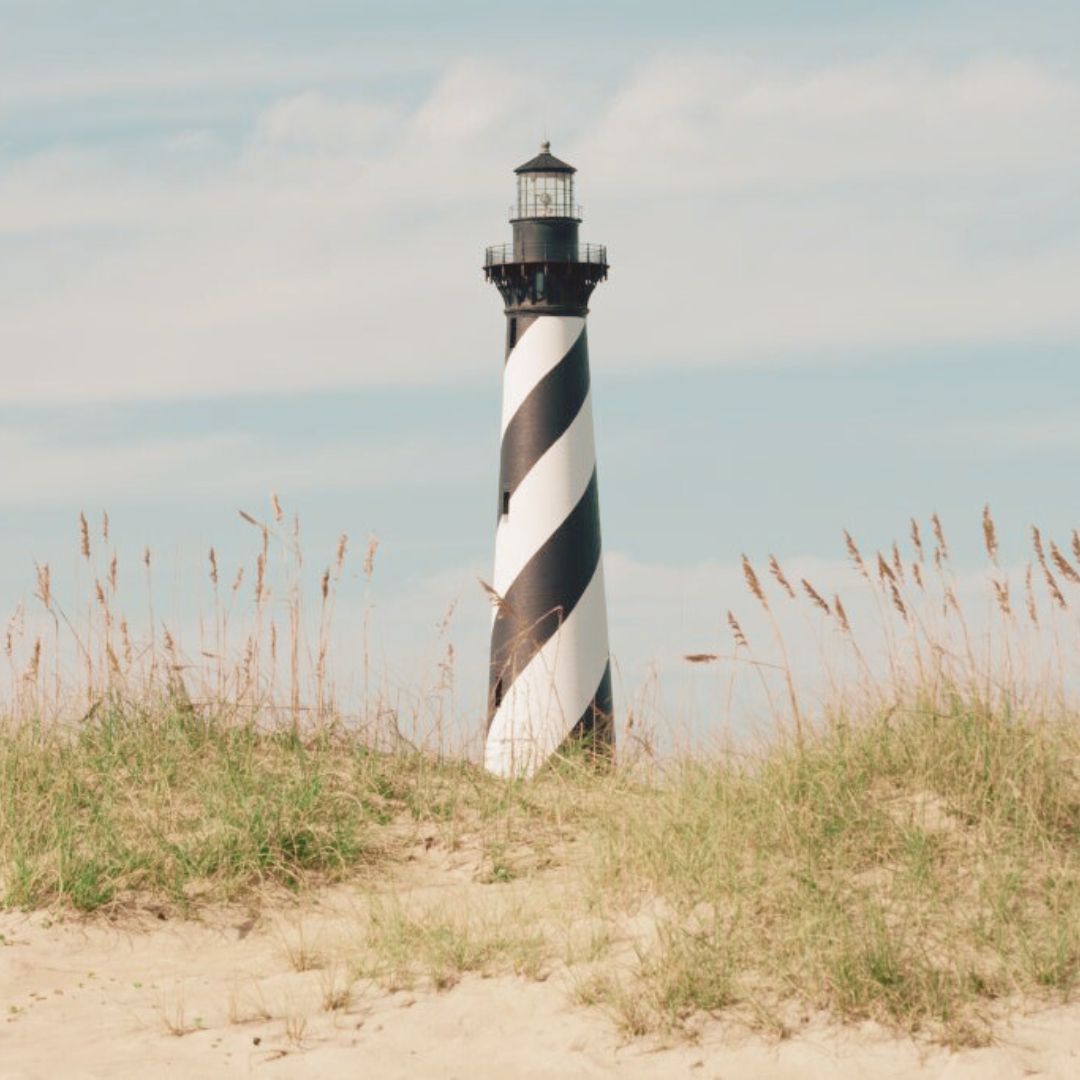Life is an adventure. Let’s go!
Small island life, protected nature reserves, coastal communities, and wide open beaches.
Hatteras Island is forty miles long and less than half a mile wide in some parts. It is found at the southern end of the Outer Banks, a two hundred mile long chain of barrier islands off the coast of North Carolina. Jutting far out into the Atlantic Ocean, it takes a couple of wild bridge crossings and a scenic drive on NC 12 South to reach this remote destination located 30 miles from the nearest mainland.
Hatteras Island is recognized for its simple island lifestyle, nostalgic charm, and natural coastal landscapes. Low-lying, it sits against strong ocean currents and treacherous shoals on one side and the sheltered waters of Pamlico Sound on the other. It’s known for its wide open beaches, sand dunes, protected nature reserves, maritime forests, and marshlands. Development is limited to the seven village areas of Rodanthe, Waves, Salvo in the north, Avon in the middle, and Buxton, Frisco, and Hatteras village to the south. Together they make up the island’s small community of local mom-and-pop businesses, casual dining spots serving up seafood favorites and family-friendly fare, and outdoor outfitters catering to all your fishing and watersports needs.
It is also part of the Cape Hatteras National Seashore, protected federal land managed by the National Park Service (NPS). The park area covers Bodie Island, Hatteras Island, and Ocracoke Island. NPS works to protect and preserve its natural habitats, operates wildlife centers and nature trails, runs science and research programs, ranger-led educational activities, turtle conservation, and many other environmental initiatives. It also manages the historical sites, campgrounds, beach and sound access ramps; and issues off-road vehicle permits.
On Hatteras Island you’ll find lighthouses, fishing piers, historic lifesaving stations, and museums dedicated to its seafaring past, laying its claim to being the Graveyard of the Atlantic with thousands of shipwrecks and many lost souls. The island’s rich history includes tales of pirates and Captain Blackbeard, the mysterious ‘Lost Colony’ of the first British settlers, and of families who can trace their lineage back to the original ‘high-tiders’ that washed ashore.
Historically, the island was referred to as Croatoan or sometimes Hatorask, ‘people of the shallow water,’ from the indigenous tribes who lived here. The council was based in Buxton and included settlements of Hatterask in what would be Frisco, Kinnakeet, an area ‘that which is mixed’ in Avon, and the ‘shifting sands’ of Chicamacomico at the northernmost end. These traditional names can still be found today, reflecting the island’s past connection to its Algonquian-speaking Croatoan people.
Before tourism, the island depended on commercial fishing and hunting. Today, Hatteras Island is a leisure and vacation destination that attracts fishermen, birdwatchers, watersports enthusiasts, and large family groups who come to stay at big beachfront homes each summer—and many who’ve vacationed here for decades. The season runs from Memorial Day to Labor Day; spring and fall shoulder seasons are less crowded, and many local businesses will close down over the winter months.
Seasonal winds make Hatteras Island a prime location for windsurfers and kiteboarding. It’s also one of the top surf destinations on the east coast, thanks to its unique location and exposure to ocean swells. Hatteras Island also attracts big prize fishing tournaments and professional anglers. Its close proximity to the Gulf Stream ensures a good opportunity to land a catch, with many people coming to fish the Blue Marlin Capital or spend a day out on a charter with crew from Wicked Tuna Outer Banks.
Hatteras Island has much to offer if you are looking for an outdoor lifestyle, simple pleasures, and a laid-back vibe. If you are thinking of visiting or would like to know more, feel free to reach out.
Notes
- https://www.outerbanks.org/plan-your-trip/the-islands/hatteras-island
- https://www.nps.gov/caha/index.htm
- https://islandfreepress.org
- https://obxforever.org/
Photo credit: Shutterstock

